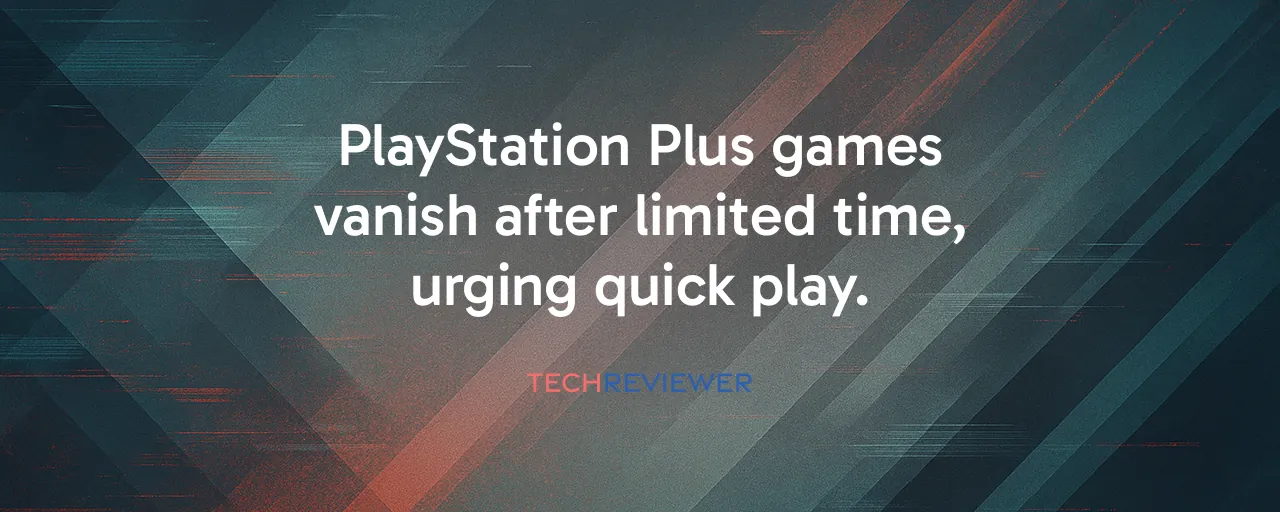The Clock's Ticking
Every month, PlayStation Plus subscribers brace for change. Sony refreshes its Extra and Premium catalogs, adding fresh titles like Silent Hill 2 while quietly pulling others. In November 2025, seven games, including Battlefield 5 and Like a Dragon Ishin, will exit the service around November 18. For players deep into these titles, the news feels like a countdown. Imagine grinding through Digimon Survive's branching storylines only to see it vanish mid-playthrough.
This rotation model, where games come and go based on 12-to-24-month licensing deals, keeps the catalog dynamic. With 51.6 million subscribers, PlayStation Plus thrives on variety, but the flipside is clear: players must act fast or lose access. Unlike the Essential tier, where monthly games stay forever, Extra and Premium titles disappear, leaving no trace for active subscribers.
Strategic Shuffles
Sony's game removals aren't random. Take Battlefield 5's exit, which follows Battlefield 1's departure in October 2025. Electronic Arts, the publisher behind both, likely pulled them to spotlight Battlefield 6, which sold over seven million copies and generated 350 million dollars in its opening weekend. By clearing out older entries, Sony and EA steer players toward the shiny new sequel, a tactic that aligns with franchise lifecycle management.
The pattern repeats with Like a Dragon Ishin leaving as Yakuza Like a Dragon joins the October lineup. Publishers use these swaps to refresh interest in their franchises, ensuring new releases don't compete with catalog holdovers. It's a calculated move, but it leaves subscribers scrambling to finish games or weighing whether to buy them outright before they're gone.
The Completionist's Dilemma
For some players, game removals hit hard. Digimon Survive, a visual novel with tactical RPG elements, requires about four playthroughs to unlock all story routes and earn its platinum trophy. One Reddit user shared their frustration, abandoning their third run due to repetitive gameplay, only to face the game's removal in November 2025. The time pressure transforms leisurely gaming into a race against the clock.
Sony's model encourages discovery by exposing players to niche titles like Travis Strikes Again: No More Heroes, which might not sell at full price. Yet, the looming threat of removal can sour the experience, especially for completionists or casual players who can't dedicate hours before the cutoff. With 119 million monthly active PlayStation Network users, these concerns ripple widely.
Balancing Value and Volatility
Subscription services like PlayStation Plus promise affordability, with Extra and Premium tiers at 14.99 and 17.99 dollars per month. They've driven a 14 percent subscriber growth to 3.7 million for the Extra tier alone in 2025. The model lets players sample diverse genres without 70-dollar purchases, and 68 percent of Premium users leverage cloud streaming for instant access. But the rotating catalog introduces volatility, as games vanish without guaranteed notice.
Compare this to Xbox Game Pass, which often includes day-one releases but faces similar removal challenges. Both platforms grapple with subscriber fatigue, with 68 percent of gamers reporting exhaustion from juggling multiple services. The trade-off is clear: subscriptions offer vast libraries but demand active engagement, or players risk losing progress.
Lessons From the Catalog Game
Battlefield 5's removal shows that publishers focus on promoting new releases rather than keeping older titles in the catalog. EA's strategy to phase out older titles post-Battlefield 6's launch shows how subscriptions align with market cycles. Meanwhile, Digimon Survive's exit highlights a different issue: niche games gain exposure through subscriptions but risk alienating dedicated players when pulled too soon.
Sony could ease the sting by offering clearer removal timelines or discounts on departing titles. As the gaming subscription market grows toward 46.86 billion dollars by 2035, platforms must balance publisher needs with subscriber satisfaction. For now, players face a simple choice: play fast or pay up to keep their favorites.
